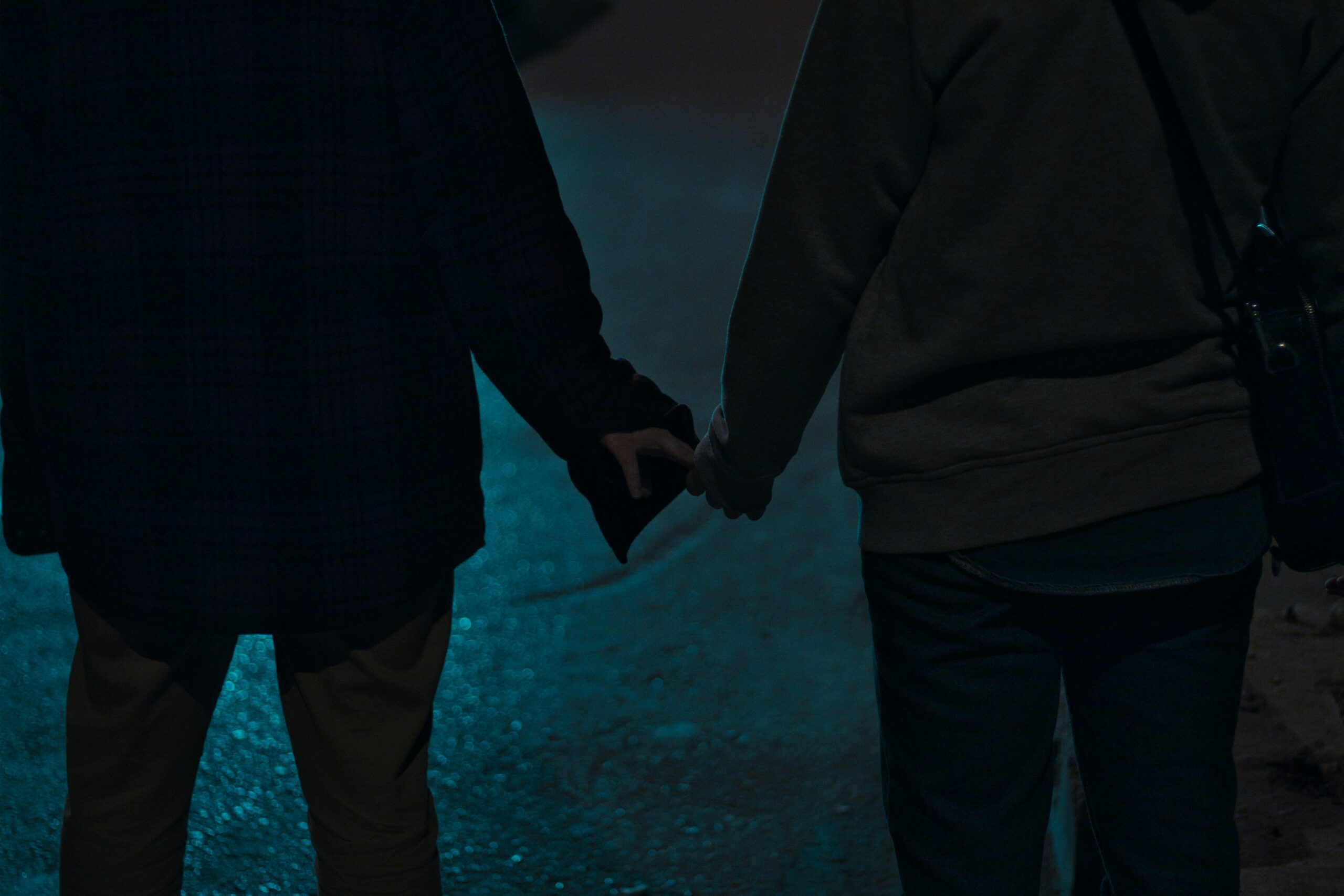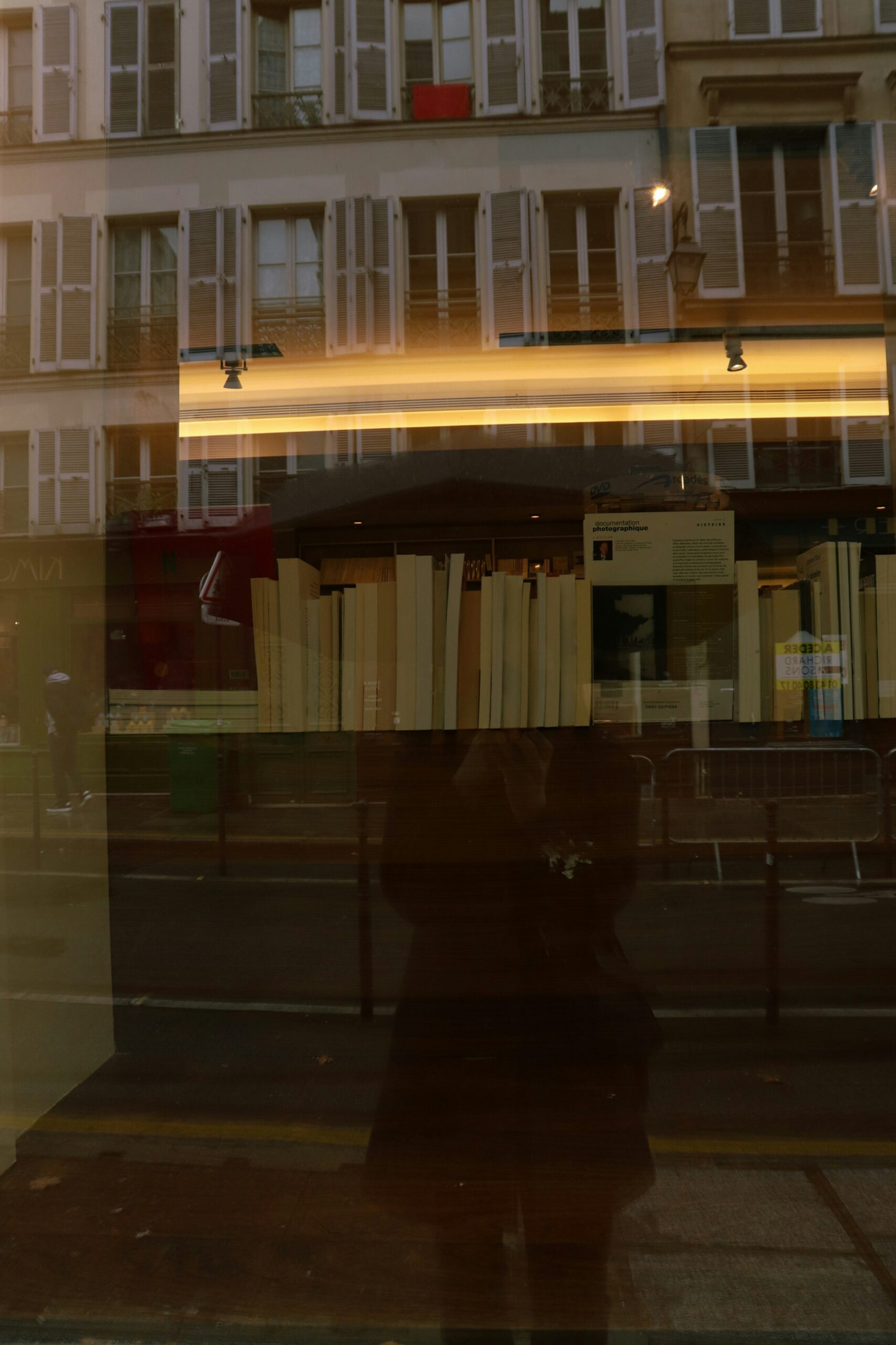| Megha S Nath | October 2025 | Short Story |
Munia woke before the hens. The first light of dawn was only a few rays across the dark sky, and the small mud hut was silent, except for her mother’s breathing and the occasional snort of her baby brother, curled up against her Ma’s chest. She lay still for a moment, listening to the rustle of the leaves outside and the trickling of water from the leaky tap.
Then she slipped out from under the thin cotton sheet, her bony knees exposed to the morning chill, and tiptoed across the mud floor. She paused near the doorway, looking at Ma’s tired face turned to the wall, strands of oiled hair escaping her plait. Munia fidgeted with the hem of her skirt, bit her lip, and hesitated for a moment. But then, the orchard called out to her like it did every dawn. Why not? Her Baba, her dearest grandfather, was the caretaker—a job that Hari bhaiyya had offered him out of pity, when her father had died a few months ago.
Outside, the air was cool and moist, smelling of cow dung, smoke, and dew. Munia rubbed her bare arms and quickly wrapped herself in a gamcha that hung by the door. She began to run towards the orchard. The earth was soft under her feet, pebbles pressing into her soles. She flinched, but kept going. Skipping over the narrow naala, past the rows of bottle gourd and okra plants, she knew her way to the orchard..
The orchard with its fruit-laden trees always enchanted her like a secret world. Old mango trees spread their wide arms into the sky, their leaves whispering stories to the breeze. Munia slowed down as she approached the caretaker’s hut at the edge of the orchard.
Baba was already awake. He sat cross-legged on a flat stone, wiping his small iron sickle with a rag. His back was hunched, wrapped in an old wool shawl, and his hair was a halo of white around his brown scalp. But his eyes, they were the sharpest eyes Munia knew, bright, quiet, and wise. Baba had an answer to all her questions. Almost all. He failed to answer just one: “Why can’t we eat the fallen mangoes from the orchard?” Baba had smiled and patted her head.
“ Baba..” she called out to him.
“Munia,” he said without looking up. “You are early today.”
She grinned, sitting beside him, her thin braid swinging down her back. “I wanted to see the mangoes before school.”
Baba nodded, folding away his rag. “Come.”
They walked into the orchard together. Baba held her hand as she jumped over stones playfully. The ground was littered with curling dry leaves. A sweet fragrance hung in the air. Above, mangoes hung heavy on branches, fat green ovals with a faint golden blush, waiting for the sun to ripen them. Munia’s stomach growled. She hadn’t eaten since last night’s gruel. Her eyes scanned the ground eagerly.
“There,” Baba said softly, pointing with his stick.
Under the tallest tree lay a single mango. It was a little bruised, its stem snapped clean, a droplet of sap oozing from its tip like a tear. Munia gasped and ran forward, squatting beside it. She cupped the fruit in her small palms. Its skin was cool and fragrant with that deep green sourness. She held it to her nose and closed her eyes, letting its smell fill her empty belly with sweet anticipation. The hunger pangs gnawed at her stomach.
Behind her, a car engine growled. She turned quickly. Baba pulled Muniya to her feet and stood, joining his hands. The owner, Hari Bhaiya, pulled up beside the orchard gate in his white jeep. He stepped out, wearing ironed trousers and a checked shirt, his leather sandals sinking slightly into the damp earth. His sunglasses rested on his forehead despite the faint dawn light. His gaze swept over Munia and Baba with impatience.
“What are you doing with that mango?” he barked.
Munia shrank back. Baba stepped forward, bending his head low.
“It fell in the night, Hari Baba. It’s bruised. I was just showing her,” he said softly.
“Leave it. We can sell it mixed with the good ones. These are for the market. Even the fallen, bruised ones. ” His tone was rude and firm. He glanced at Munia’s dusty feet and wrinkled nose with faint disgust. “Go home, girl.”
Munia’s eyes filled with silent tears. Her stomach clenched with hunger and shame. She placed the mango back on the earth gently, as if returning a bird to its nest. Hari Bhaiya walked away, checking his phone signal, and walked towards the far end of the orchard to inspect the water pipes.
Baba waited until he was out of sight. Then, like a hawk that had spotted its prey, he swooped upon the mango and slipped it into Munia’s jhola.
“Run home before he sees,” he whispered.
Munia looked up at him, eyes wide with gratitude. Her chest felt too full to speak, so she threw her arms around his thin waist and hugged him tightly. His wool shawl smelled of smoke. She ran back down the orchard path, her feet pounding against the earth, the mango thumping softly against her hip in the cloth bag.
At home, Ma was kneeling near the chulha, blowing gently into the firewood. Smoke curled into her hair, making her eyes water. Munia placed the mango on the mud shelf with a triumphant grin.
Ma turned, eyes widening. “Where did you get this?”
“Baba gave it to me. It was a fallen one,” Munia said, bouncing on her toes.
Ma’s face hardened. She grabbed Munia’s wrist. “Why did you bring it here? Do you want them to throw Baba out of work? These are not ours!”
Munia stared at her, tears welling up. “But it fell… no one saw… I was so hungry… and fallen fruits belong to the person who finds them.”
Ma closed her eyes, pressing her lips together until they turned white. She let go of Munia’s wrist and slumped onto the mud floor, wiping her eyes with the edge of her saree.
“Don’t say such things, Munia. We are poor, but we do not steal,” she whispered. “Your father died trying to protect his maalik’s farm from wild boars. Keep up his honour.”
Munia washed the mango under the tap outside. The water splashed over its golden skin, making it glow in the early sunlight. A part of it was soft, but Muniya was sure it would taste heavenly. She placed it on a metal plate and wanted to bite into it right there, to feel its sweetness on her tongue, to fill her belly with something other than the thin gruel Ma made and the watery porridge served at school. But Ma’s tears hurt her more than hunger.
After changing into her faded blue uniform and oiling her hair, Munia slipped the mango back into her jhola. She walked barefoot across the dusty courtyard, past the goats chewing on neem leaves, and back towards the orchard.
Baba was trimming low branches when he saw her. She walked up to him silently, pulling out the mango and placing it in front of his feet.
“I don’t want Ma to cry,” she said.
Baba looked at the mango, then at Munia’s bent head. He sighed, his shoulders slumping under an invisible burden. Without a word, he took out his small iron sickle, sliced the mango along its edge, twisted it apart with his strong brown fingers, and handed half to Munia.
She looked up, her eyes wide. “But…”
“Eat, child,” he said softly. “It fell for you.”
She bit into the juicy flesh. Sweet-sour juice flooded her mouth, making her eyes water, but she smiled as she chewed, juice dripping down her chin. Baba sucked on the seed, his eyes closing with quiet pleasure. For a few moments, they sat in silence under the big tree, the rising sun casting light through the leaves onto their bowed heads.
_________________________

Megha is passionate about storytelling and exploring the human experience through words. When she’s not writing, you can find her reading and journaling , always seeking new inspiration. By profession she is a practicing dental surgeon.
_________________________
Photo by Allec Gomes on Unsplash
Find MeanPepperVine on Instagram @MeanPepperVine



So beautiful Megha .. your stories have a touch of nostalgic and weave the magic of emotions .. I loved reading this and remembering the childhood we all can never go back to.